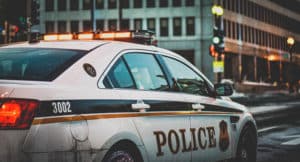 A police brutality lawyer Philadelphia relies on can help you and your family when faced with unfair treatment from the police. Our firm is committed to the civils rights of Philadelphians, including those who are suspects of crimes. We will help investigate your claim to understand what happened, determine liability, and ensure you receive fair treatment. A police brutality lawyer Philadelphia counts on will fight for you and your rights throughout the entire process.
A police brutality lawyer Philadelphia relies on can help you and your family when faced with unfair treatment from the police. Our firm is committed to the civils rights of Philadelphians, including those who are suspects of crimes. We will help investigate your claim to understand what happened, determine liability, and ensure you receive fair treatment. A police brutality lawyer Philadelphia counts on will fight for you and your rights throughout the entire process.
There are varied types of police brutality and misconduct. Some of the most common forms of misconduct include:
Excessive force is when a member of law enforcement uses more physical force than necessary to control the situation. If a police officer beats a person without provocation or uses a weapon when its not required, this may be considered excessive force. Officers are allowed to use force when it is necessary to make an arrest, but it must be reasonable for the circumstances.
For example, if a petite, elderly woman attempts to push an officer away with her hands, it would be inappropriate for the officer to hit her across their face with their service weapon.
The use of deadly force is an often-scrutinized issue of police brutality. A police officer is allowed to use deadly force only when they believe they are at personal risk of serious bodily injury or death. For example, if a suspect pulls a gun on an officer, they may be appropriate in using deadly force to protect themselves. However, use of deadly force by a suspect who is kicking and punching may be excessive force.
Proving police misconduct and brutality can be a monumental task. Police who engage in misconduct often hide the evidence of their wrongdoing and have assistance from other officers in the department to cover up their transgressions. A police brutality lawyer Philadelphia trusts is instrumental to investigate the incident and get to the truth of what happened.
Personal injury claims against police officers must be filed within your state’s statute of limitations. However, there may be other notice requirements needed for certain claims. Given the complexity and variables involved, we encourage you to speak with a police brutality lawyer to review your situation and determine if you can file a claim.
Many times, the civil liability for police brutality incidents will come down to the police department or the municipal authority. These organizations may be self-insured or have insurance carriers that handle settlements or verdicts for these claims. A civil claim is handled separately from any criminal charges that arise from the situation.
While body cameras a viewed as a tool to prevent police brutality, they are not foolproof. First, not all police departments and officers are equipped with body cameras. As of July 2020, the Philadelphia police department only had enough body cameras to fit about one-third of their officers. Many police departments throughout Pennsylvania and New Jersey do not have body cameras at all.
Another problem with body cameras is that they only work when they are turned on. While Philadelphia’s body camera policy requires cameras to be on when responding to a crime, conducting a motor vehicle or pedestrian search, or initiating arrest, this often simply doesn’t happen.
Finally, many police departments fail to independently review and audit the body camera footage. Limited oversight of the video is often left to individual supervisors and may be haphazard.
A police brutality lawyer Philadelphia trusts is available for a free consultation. We will review the circumstances around your incident and discuss your legal options. Our attorneys work tirelessly for victims injured by police brutality and fight tirelessly for their civil rights. Call the Wieand Law Firm, LLC today at 215-666-7777 or send us a message to speak directly to a lawyer.
